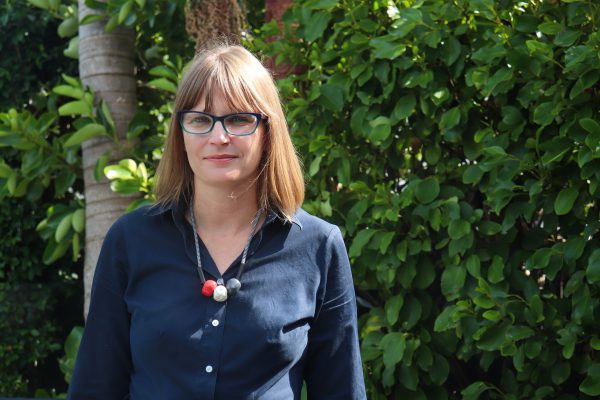Whangarei author Michael Botur is urging authors nationwide to become more digitally savvy – especially short story writers.
Botur launched his first novel ‘Moneyland’ this week (free downloads available for one week at https://nzshortstories.com/moneyland-novel/ ). The novel is a dystopian sci-fi aimed at readers 15-25, and follows the decay of a community of high schoolers as they undertake a biodome experiment on a suburb where, without supermarkets, there is virtually nothing to eat. $3000 was raised to pay for the novel’s editing, cover design, formatting, proofreading and printing thanks to a Boosted.org.nz campaign.
Before the online campaign, Botur said he put his published short fiction in an online gallery at https://nzshortstories.com. He is urging other short fiction writers to do the same, so there is less reliance on literary journals and printed copies of books in libraries.
“Of the top 10 or 20 best-known NZ short fiction writers, virtually none offer their writing to read online,” Botur said. “I’m urging writers, once their material is of publishable quality, to host it online to make it easier for your audience to access your work.”
Botur, 33, began publishing short fiction in literary journals in 2005 and is today author of four collections of short stories and has won or placed in the top three of the Whangarei Libraries Flash Fiction competition, the Miles Hughes Award, the NZSA Short Story Competition, the Kiwi Short Story Competition, Her magazine Short Story Competition and others.
Botur said in early 2017 he became fed up with the slow process of getting stories published in literary magazines – which can take over 12 months, even online, often without payment – and now encourages writers of short stories or novels to prepare each publication as a PDF, epub, Mobi and Word document and on websites so the story can be read on any internet-capable device.
Botur said the 20th century culture of depending on publishers for all promotion of literature doesn’t work in the year 2017. A number of digitally-savvy authors he has met while coordinating the Writers Up North collective have convinced him of the advantages of publishing online. Unfortunately, this leaves old-fashioned writers behind.
“I feel unfortunately there is a widening gulf between tech-savvy authors and people who are glued to the process of publishing on paper – which is slow, wasteful and severely limits the audience who will read each work. You’re slightly better off as a novelist, but short story writers are really left behind – unless they go online.”
“There are virtually no places online in NZ where short stories are published, and none that publish weekly or monthly. This hurts the craft of Kiwi short story writing. We need to reinvigorate support for the art of the short story by making short fiction more accessible online. That means hosting both brand new material and legacy material which is decades old.
“Name any respected NZ short story writer – I can almost guarantee you won’t be able to read their work online, and that doesn’t do Kiwi literature any favours. That’s why I set up www.nzshortstories.com – to protect, preserve and proudly publish, especially since our largest publishers put out virtually zero short story collections.”
Michael said Dargaville author J B Reynolds, Kaipara author Stephanie Green, Whangaparaoa/Auckland author J L Pawley and Whangarei author Peri Hoskins have each shown a knack for using electronic direct mailouts, BookFunnel, Mailchimp, Facebook, Amazon Prime and Wattpad to reach large, international audiences and to publish their work quickly – and that is something Michael urges every author to do.
Head to www.NZShortStories.com to see a good example of how NZ short fiction can be presented online, easily enjoyed, shared and downloaded.
Order and read young adult sci-fi dystopian novel ‘Moneyland’ at https://nzshortstories.com/moneyland-novel/ .



